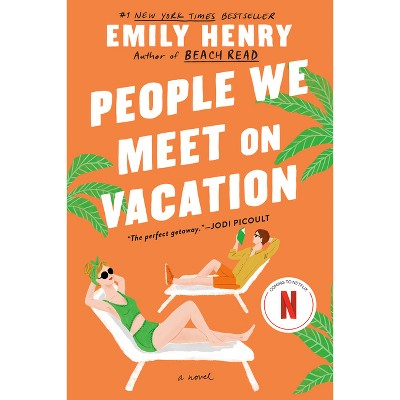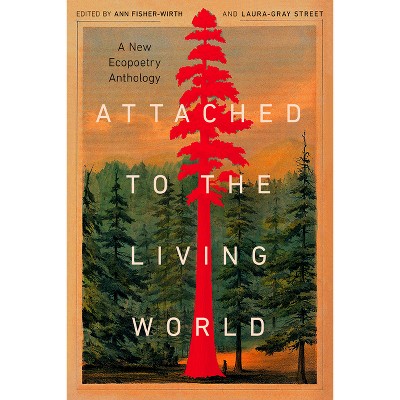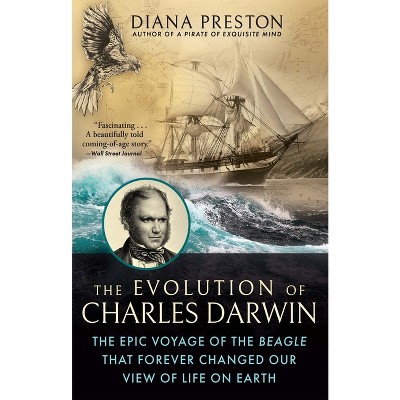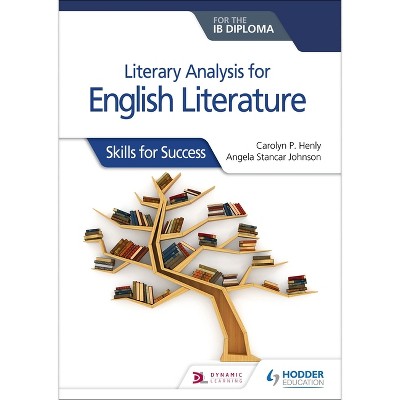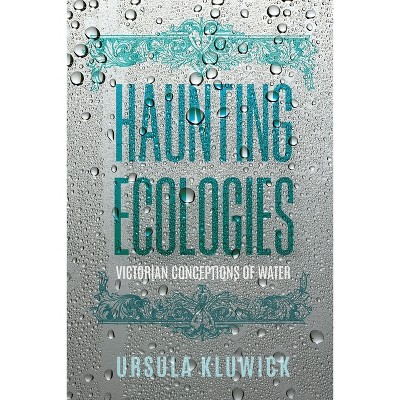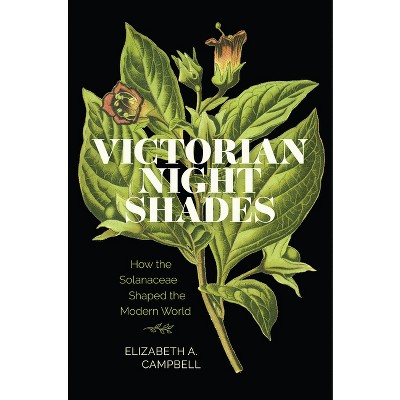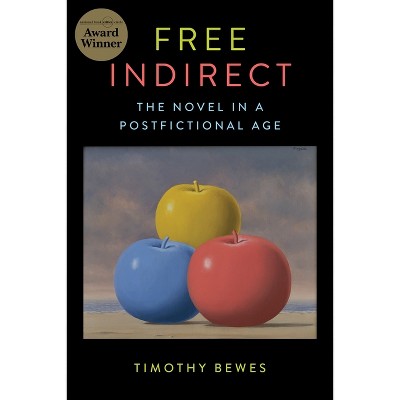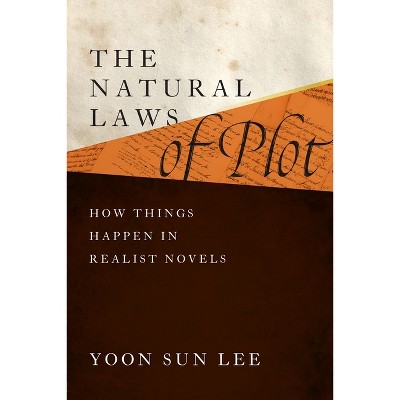Sponsored

Extraction Ecologies and the Literature of the Long Exhaustion - by Elizabeth Carolyn Miller (Paperback)
$29.99Save $9.01 (23% off)
In Stock
Eligible for registries and wish lists
Sponsored
About this item
Highlights
- How literature of the British imperial world contended with the social and environmental consequences of industrial mining The 1830s to the 1930s saw the rise of large-scale industrial mining in the British imperial world.
- About the Author: Elizabeth Carolyn Miller is professor of English at the University California, Davis.
- 304 Pages
- Literary Criticism, Modern
Description
About the Book
"How literature of the British imperial world contended with the social and environmental consequences of industrial mining. The 1830s to the 1930s saw the rise of large-scale industrial mining in the British imperial world. Elizabeth Carolyn Miller examines how literature of this era reckoned with a new vision of civilization where humans are dependent on finite, nonrenewable stores of earthly resources, and traces how the threatening horizon of resource exhaustion worked its way into narrative form.Britain was the first nation to transition to industry based on fossil fuels, which put its novelists and other writers in the remarkable position of mediating the emergence of extraction-based life. Miller looks at works like Hard Times, The Mill on the Floss, and Sons and Lovers, showing how the provincial realist novel's longstanding reliance on marriage and inheritance plots transforms against the backdrop of exhaustion to withhold the promise of reproductive futurity. She explores how adventure stories like Treasure Island and Heart of Darkness reorient fictional space toward the resource frontier. And she shows how utopian and fantasy works like "Sultana's Dream," The Time Machine, and The Hobbit offer imaginative ways of envisioning energy beyond extractivism.This illuminating book reveals how an era marked by violent mineral resource rushes gave rise to literary forms and genres that extend extractivism as a mode of environmental understanding"--Book Synopsis
How literature of the British imperial world contended with the social and environmental consequences of industrial mining
The 1830s to the 1930s saw the rise of large-scale industrial mining in the British imperial world. Elizabeth Carolyn Miller examines how literature of this era reckoned with a new vision of civilization where humans are dependent on finite, nonrenewable stores of earthly resources, and traces how the threatening horizon of resource exhaustion worked its way into narrative form. Britain was the first nation to transition to industry based on fossil fuels, which put its novelists and other writers in the remarkable position of mediating the emergence of extraction-based life. Miller looks at works like Hard Times, The Mill on the Floss, and Sons and Lovers, showing how the provincial realist novel's longstanding reliance on marriage and inheritance plots transforms against the backdrop of exhaustion to withhold the promise of reproductive futurity. She explores how adventure stories like Treasure Island and Heart of Darkness reorient fictional space toward the resource frontier. And she shows how utopian and fantasy works like "Sultana's Dream," The Time Machine, and The Hobbit offer imaginative ways of envisioning energy beyond extractivism. This illuminating book reveals how an era marked by violent mineral resource rushes gave rise to literary forms and genres that extend extractivism as a mode of environmental understanding.Review Quotes
""Brilliantly thought out, wonderfully well written, and extremely well executed. . . . Extraction Ecologies is a much-needed panoramic tour of the long nineteenth century's large-scale industrial extraction that digs into the historical roots of our current ecological calamities. It should be a major reference for students and scholars in Victorian studies, energy humanities, and ecocriticism in years to come." --Sebastian Egholm Lund, Victorian Review "
""Important and illuminating. . . . Extraction Ecologies contributes a compelling new framework for understanding how the environmental crises we grapple with today cannot adequately be understood without attending to their Victorian origins." -Jayne Hildebrand, Nineteenth-Century Literature "
""Miller argues that the extractive industries of metal, mineral and coal mining altered literary genre and form and vice versa, showing 'how culture, language, and discourse mediate environmental history' . . . She works through literary and scientific texts to build an image of a shift in understanding of the British Empire, one which increasingly relied on and feared the limits of extractive industry."--Indigo Gray, Green Letters "
""Miller shows how the idea of extraction came to structure certain genres of the nineteenth century, and how those forms have made it easier for us to accept the world's continued inertia regarding the extractive and environmental crises of today."--Kent Linthicum, ISLE: Interdisciplinary Studies in Literature and Environment "
""The Victorians may have set us firmly on the path toward fossil fuel dependence, but they also bequeathed us alternative futures, paths not taken or scarcely followed. Their realist and speculative fictions were discursive realms where they explored these tensions. Miller has provided the definitive account of this literary landscape in a rich work that illuminates both nineteenth- and early-twentieth-century fiction and our current ecological condition." --Chris Otter, Victorian Studies "
"[A] well-research work. . . . Miller's groundbreaking study of 'extractive fictions' sets the stage for more research on how literature reflects the perils and short-sightedness of an age."-- "Choice Reviews"
"A rich and moving contribution. . . . [Miller's] book will become essential reading for scholars of the very long nineteenth century and an invaluable resource for those seeking new ways to teach that literature to students whose lives are taking shape in the inescapable context of accelerating climate change."---Iain Crawford, Dickens Quarterly
"This is a major book that will invite scholars of the period to think in new ways about "extractivism," while also showing how vital historical interpretation is to the environmental and energy humanities, fields that have predominantly focused on contemporary culture."---Benjamin Morgan, Critical Inquiry
"A Choice Outstanding Academic Title of the Year"
"Co-Winner of the Stansky Prize, North American Conference on British Studies"
"Honorable Mention for the Ecocriticism Book Award, Association for the Study of Literature and Environment"
About the Author
Elizabeth Carolyn Miller is professor of English at the University California, Davis. She is the author of Slow Print: Literary Radicalism and Late Victorian Print Culture and Framed: The New Woman Criminal in British Culture at the Fin de Siècle. Twitter @ecmille1Dimensions (Overall): 9.06 Inches (H) x 6.06 Inches (W) x .87 Inches (D)
Weight: .88 Pounds
Suggested Age: 22 Years and Up
Number of Pages: 304
Genre: Literary Criticism
Sub-Genre: Modern
Publisher: Princeton University Press
Format: Paperback
Author: Elizabeth Carolyn Miller
Language: English
Street Date: October 12, 2021
TCIN: 84859000
UPC: 9780691205533
Item Number (DPCI): 247-17-1026
Origin: Made in the USA or Imported
If the item details aren’t accurate or complete, we want to know about it.
Shipping details
Estimated ship dimensions: 0.87 inches length x 6.06 inches width x 9.06 inches height
Estimated ship weight: 0.88 pounds
We regret that this item cannot be shipped to PO Boxes.
This item cannot be shipped to the following locations: American Samoa (see also separate entry under AS), Guam (see also separate entry under GU), Northern Mariana Islands, Puerto Rico (see also separate entry under PR), United States Minor Outlying Islands, Virgin Islands, U.S., APO/FPO
Return details
This item can be returned to any Target store or Target.com.
This item must be returned within 90 days of the date it was purchased in store, shipped, delivered by a Shipt shopper, or made ready for pickup.
See the return policy for complete information.

